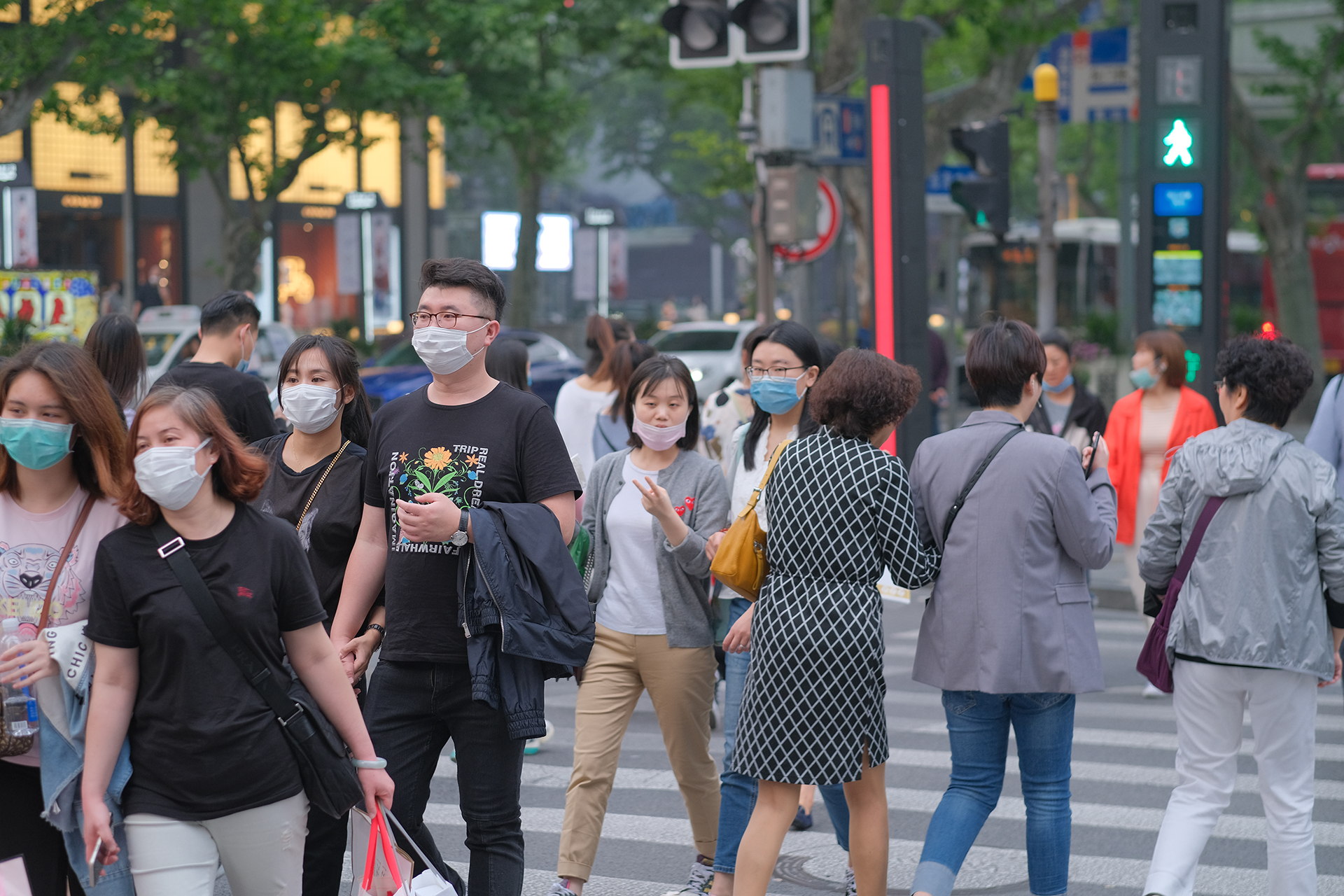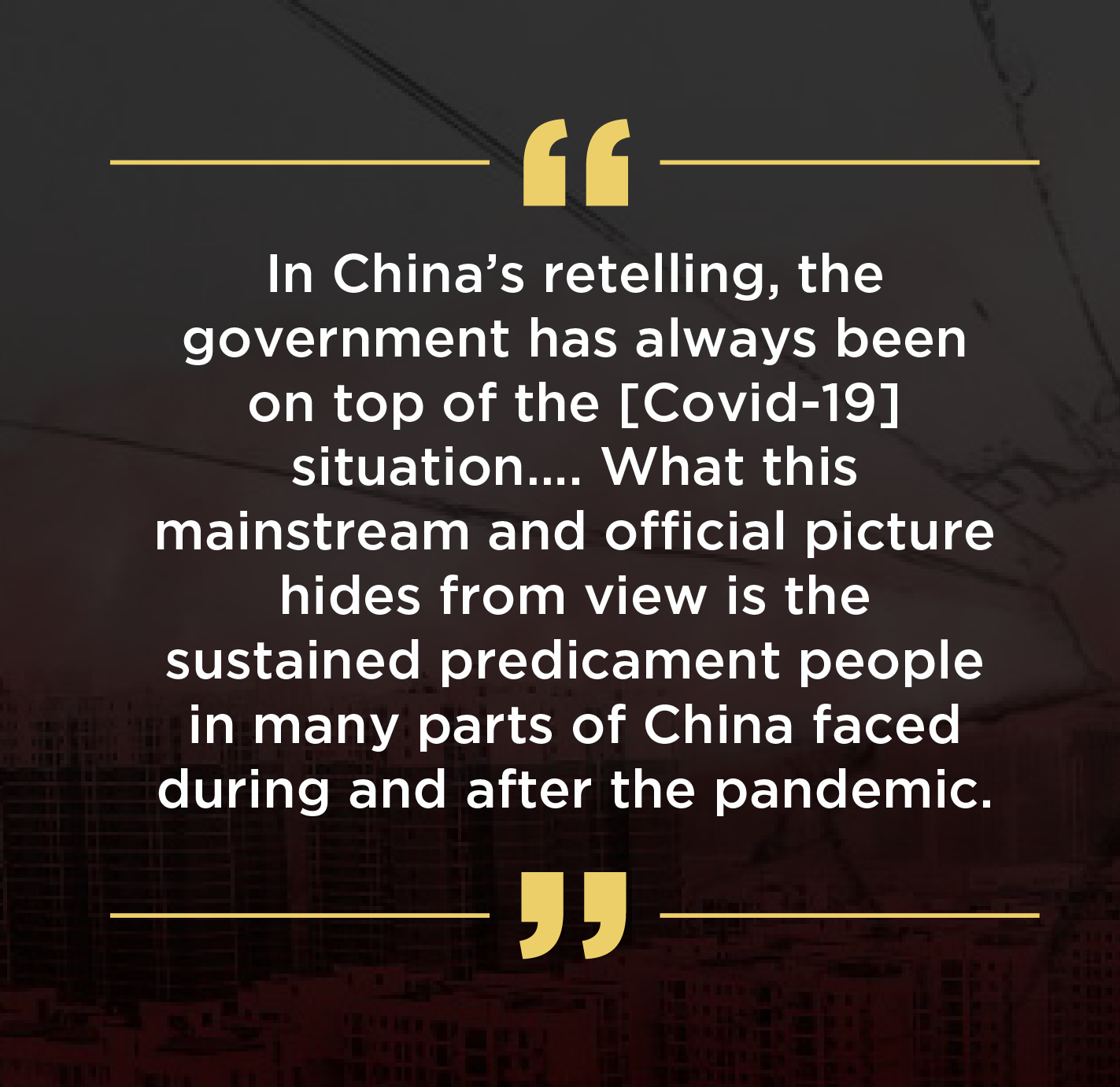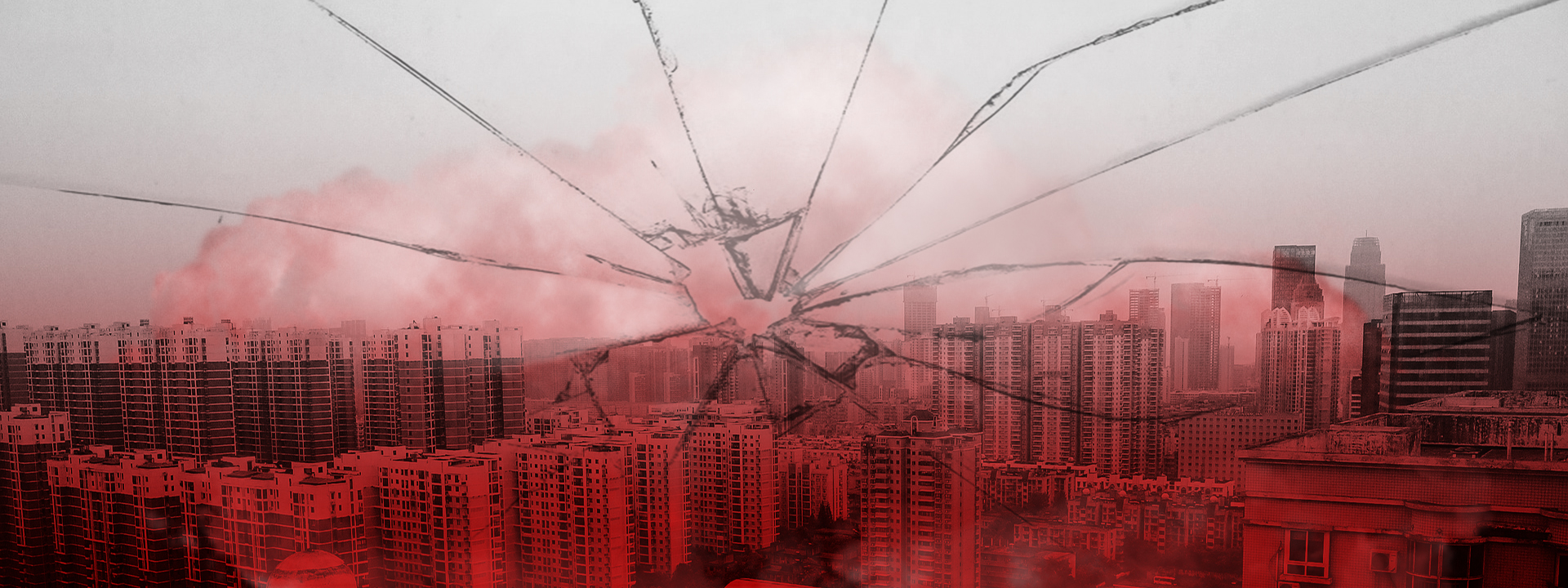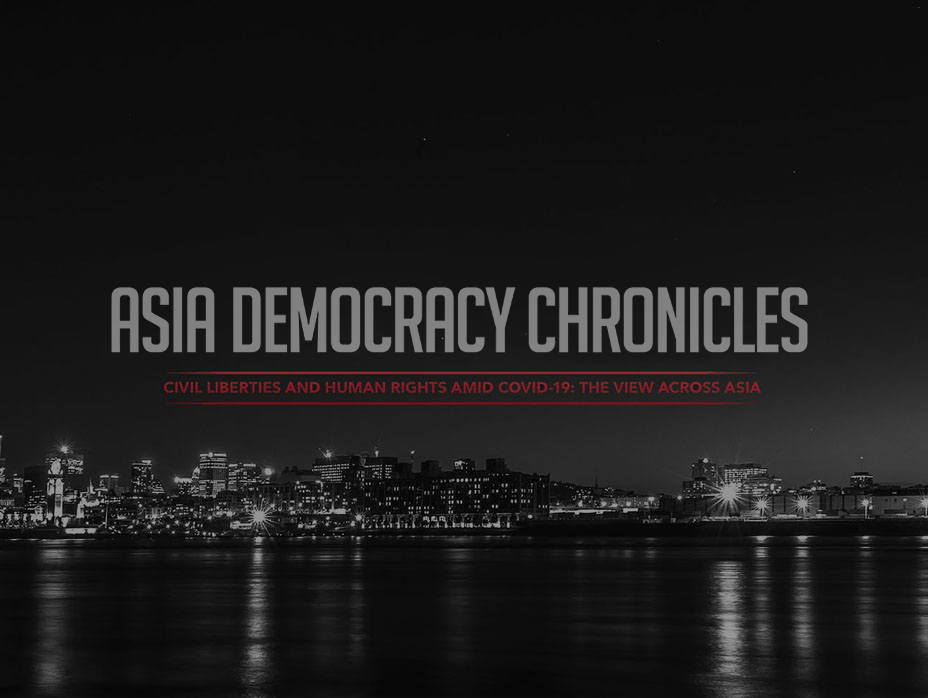Ican’t bear to watch my mother die like this,” a daughter laments on Weibo, a popular online microblogging site in China.
Her mother was sick with a then-unknown respiratory illness. Those afflicted would start coughing, and their bodies would feel heavy and weak. Then came the fevers. Not much was known about it yet, but nevertheless, the frail and the elderly were advised to be extra vigilant. The netizen’s mother was 78 years old.
There was no reason to be hopeless, though, the daughter believed. The government, after all, had promised that the sick would be sent to hospitals, and that they’d receive all the necessary treatments. “We must have confidence,” she types.
But they were stuck. All that they got by way of a response was being put on the waitlist for an injection. Time was running out, and they were running out of options.
“My family is honest. We are unwilling to add any trouble to the government at a very special time, but I really have no other choice,” she writes. “Please help us to find a bed in the hospital for my mother.”
In the earliest days of the pandemic, Wuhan City, in eastern China, the epicenter of what soon became a global crisis, was hit especially hard. On a daily basis, thousands of people would test positive for the infection, as dozens died. It was chaos.
Today, media reports coming out of the mainland paint a much calmer picture. Save for a few districts in Beijing, the lockdown has been lifted across the country, and life has started to inch slowly back to normalcy.

The Chinese citizens’ satisfaction with information dissemination and state performance at various government levels during the pandemic is reportedly high. Yet research shows that satisfaction is lower among the highly educated and those under 30 years old.
In China’s retelling, the government has always been on top of the situation. Its drastic interventions, including strict lockdown procedures, the health code app, and other auxiliary measures, have not only been effective, but necessary.
The Chinese citizens’ satisfaction with information dissemination and government performance during the pandemic from various levels of government is also reportedly high.
A recent research, for example, demonstrates that Chinese citizens indicated an overall satisfaction score of 39.2 (38.8 in Hubei province, where Wuhan is located) out of 50, although the score is lower among the highly educated and those under 30 years old.
What this mainstream and official picture hides from view is the sustained predicament people in many parts of China faced during and after the pandemic.
“Save me and my son, save Wuhan!”
Wuhan was placed under lockdown on 23 January, and it was lifted only on 8 April. The local government of Wuhan adopted the slogan “leave no household, no one behind” in order to reassure the public that it was on top of the situation.
Zhonglin Wang (王忠林), of the Hubei provincial party committee and the standing committee of Wuhan city, announced in an online meeting that the municipality would kick off a mass testing campaign (拉網式排查) and fulfil “the five 100-percent (五個百分之百)” goal.
“Diagnosed patients are 100-percent admitted, suspected patients [all 100 percent of them] get nucleic acid detection, fever patients are 100-percent tested, close contacts are 100-percent quarantined, and 100 percent of villages are locked down 24/7,” Wang said.
A couple of weeks later, in mid-February, the Wuhan government claimed that they had covered all the suspected and confirmed Covid-19 cases for 99 percent of the city’s population, and 98.6 percent of its 4.21 million households.
But the situation on the ground was a bit more complicated. “Until February, there were still several grassroots teams [that] received directly, or collected online, around 500 messages every single day to ask for help,” says a source, speaking on condition of anonymity.
“Some of these messages [were about] the rapid cremation of their family [members] who were not diagnosed with Covid-19 yet,” she adds.
 Some were asking for urgent assistance for elderly and persons with disabilities who were left to fend for themselves, while others still were lamenting the lag in hospitalizations or testing, despite the launch of a massive campaign.
Some were asking for urgent assistance for elderly and persons with disabilities who were left to fend for themselves, while others still were lamenting the lag in hospitalizations or testing, despite the launch of a massive campaign.
“We are quarantined at home. We could not be admitted to the hospital, nor have I been able to get the nucleic acid testing!” one 58-year-old male wrote on Weibo. “Apart from the meal delivery, there is no medical professionals here at all.”
Another user, a 31-year-old mother taking care of her in-laws and a 5-year-old, posted an SOS: “I am particularly scared. What [would] my five-year-old son … do if I was laid up at home? Save me and my son. Save Wuhan!”
Such accounts typically went up on online databases organized, managed, and curated by civil society groups in an effort to preserve messages that had been scrubbed from the internet.
Wuhan Crisis, which had preserved more than a thousand censored messages between 2 February and 14 March, was one such a database, as were We Hands (Wu Xin Yuan, literally ‘Wuhan, Heart, and Help), and the Terminus 2049 project. Unfinished Farewell, another similar effort, was an artistic online project that helped people say goodbye to family members they lost to the pandemic.
Ultimately, though, the government came down hard on these databases and on their operators. Even Weibo, which some people saw as sort of a last hope to air their grievances, was silenced. On 5 February, the microblogging platform saw nearly 200,000 messages asking for pandemic-related assistance.
In response, the platform said: “Weibo has cancelled around 80 percent of the messages because they are invalid and not real.”
Digital exclusion
This clampdown on the internet had another, likely unexpected, casualty: minorities. Migrant and agricultural workers, the elderly, children, and people without or with limited access to the internet were not able to receive important and necessary information immediately after the novel coronavirus broke out.
This digital exclusion and information gap puts them at greater risk. For example, certain groups of people with disabilities were not able to buy masks when news of the outbreak first came in late December whereas many other people in Wuhan had started to hoard masks for self-protection.
“Many of them learned about the pandemic in late January, which was one and a half months after other residents of Wuhan did,” says a Wuhan resident whose parents are deaf.
“Some of my friends finally found that the lockdown [had been] implemented [only] because they noticed the shutdown of the public transportation instead of receiving any official warning,” she adds.
On their end, the local government insists that assistance is extended to the most underprivileged. “We provide service and supplies for people with disability, low-income famil[ies,] and the elderly living alone when we review and scrutinize our works on targeted groups,” says Yueray Wang, Deputy Secretary of Party Committee of a community council in Wuhan, in an interview with Hubei News Channel.
“We assigned a comrade to distribute some oil and rice to the door of a blind couple this morning,” adds Chi Wang, on-site staff of the Hubei Administration of Public Resource Trade, in the same interview.
But as with the State’s massive testing campaign and the five 100-percent program, there was a gaping chasm between what was official and what was real. Back at the communities, the most vulnerable, including the elderly, continued to fall through the cracks.●



















